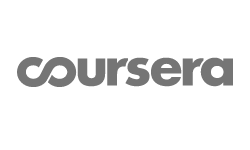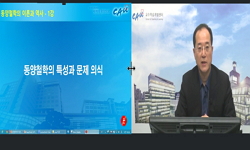`Myeonwu Gwak Jongseok[?宇 郭鍾錫]`(1846-1919) was a representative confucian scholar who experienced the collapse of Chosun dynasty in the middle of huge transitional age of eastern penetration by the west. Confucianism was the ruling ideology in...
http://chineseinput.net/에서 pinyin(병음)방식으로 중국어를 변환할 수 있습니다.
변환된 중국어를 복사하여 사용하시면 됩니다.
- 中文 을 입력하시려면 zhongwen을 입력하시고 space를누르시면됩니다.
- 北京 을 입력하시려면 beijing을 입력하시고 space를 누르시면 됩니다.

면우(?宇) 곽종석(郭鍾錫)의 유학 위도의식(衛道意識) 일고 = Myeonwu Gwak Jongseok`s Consciousness for preserving the Origin of Confucianism[儒學 衛道意識]
한글로보기https://www.riss.kr/link?id=A102208555
- 저자
- 발행기관
- 학술지명
- 권호사항
-
발행연도
2016
-
작성언어
-
- 주제어
-
KDC
800
-
등재정보
KCI등재
-
자료형태
학술저널
-
수록면
59-106(48쪽)
- 제공처
-
0
상세조회 -
0
다운로드
부가정보
다국어 초록 (Multilingual Abstract)
`Myeonwu Gwak Jongseok[?宇 郭鍾錫]`(1846-1919) was a representative confucian scholar who experienced the collapse of Chosun dynasty in the middle of huge transitional age of eastern penetration by the west. Confucianism was the ruling ideology in the Chosun dynasty for five hundred years, but it was also heavily criticized as a major cause of the decay for the dynasty. However, Myeonwu considered it was not purely originated from Confucianism itself, but mostly driven by some facts that scholars were totally swamped with extremely conceptual issues deviated from reality and governmental affairs were dominated by avarice and exploitation. Therefore, he strongly believed that recovery of the origin of Confucianism and `virtuous politics[德治]` based upon `humanity and justice[仁義]` were the only ways to overcome upcoming national crisis. Subsequently, he endeavored his sincere efforts to desperately sustain the core of Confucianism in order to confront the imminent invasion from foreign imperial powers. The paper analyzed Myeonwu`s thought and activities in a variety of areas focused on his endeavors to keep and restore the origin of Confucianism, and to deliver the ethical values to the next generations. For him, whether to protect the Confucianism or not was an uncompromising milestone and basis to determine his thought and activities. In details, Myeonwu advised emperor `Gojong[高宗]` to recover the broken discipline and to establish the harmony of former kings by admiring a `Logitimate Theory[正學]`. He also continuously debated with scholars to maintain `Simjeukri Theory[心卽理說]` of `Hanju[寒洲]`. He sometimes showed an open-mind in the context of the conservative confucius manor, though he did not join the righteous army, but was deeply involved in the Paris letter movement. They were all about the representation of pertaining the values in Confucianism. In addition, Myeonwu provided academic and self-training attitude to restore the Confucianism and to determine how to react when particular selection was requested. He showed fundamentalism for traditional rites in terms of cultivating morality to prevent western custom. In these days, the morality in the Confucianism substantially deteriorated which Myeonwu tried to preserve and deliver to the next generation already in 100 years ago. Considering that western customs dominated our society by revealing many unprecedented problems, it could be definitely valuable to retrospect the ethical values in the Confucianism, which emphasized humanity and justice and `virtue[德]`, and to reevaluate Myeonwu`s thoughts on strong belief to relieve the world through realizing the morality in the Confucianism.
동일학술지(권/호) 다른 논문
-
- 연민학회
- 순친안 ( Sun Qinan )
- 2016
- KCI등재
-
이가원(李家源) _조선문학사(朝鮮文學史)_의 서술 양식에 대하여
- 연민학회
- 이암 ( Lee Am )
- 2016
- KCI등재
-
- 연민학회
- 차오후이 ( Cao Hui )
- 2016
- KCI등재
-
청나라 문사의 유구 경험과 조선으로의 유전 -이정원(李鼎元)과 유득공(柳得恭)을 중심으로-
- 연민학회
- 구지현 ( Koo Jea-hyoun )
- 2016
- KCI등재




 KISS
KISS






